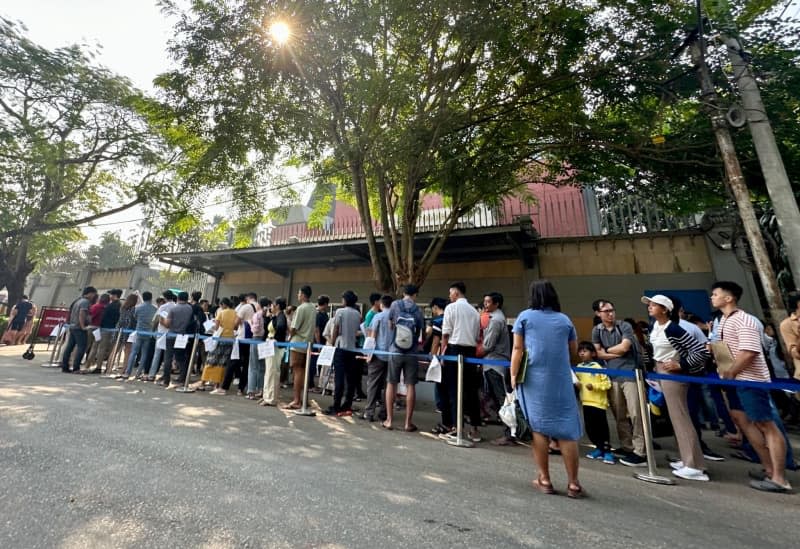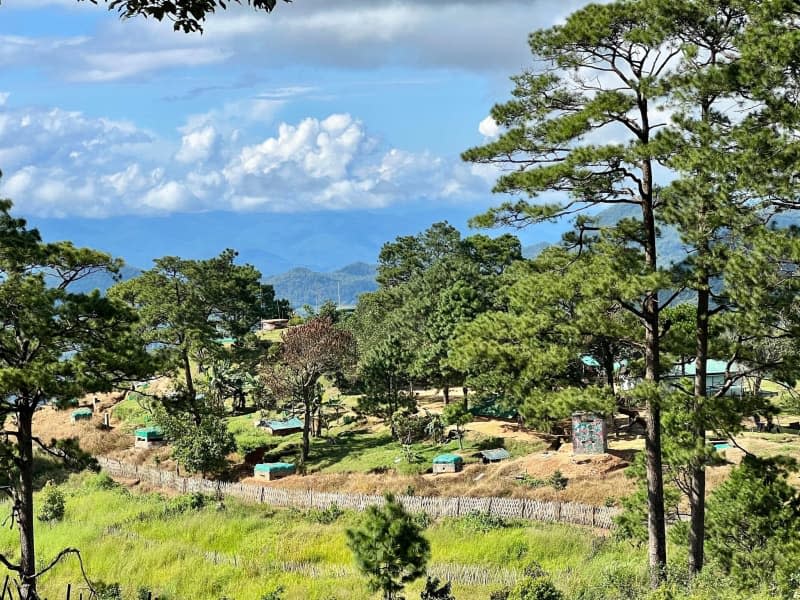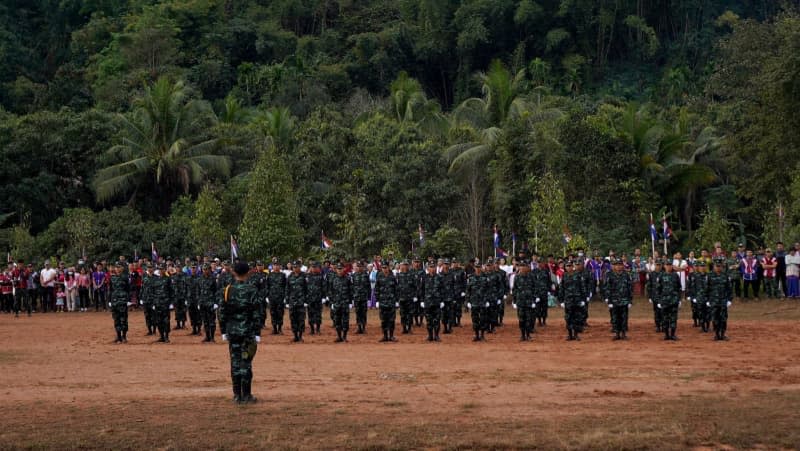How the prospect of conscription is triggering mass exodus in Myanmar

Nineteen-year-old Doe Doe has already had to make a series of difficult decisions in his young life.
When Myanmar's military took power in 2021, he decided to drop out of high school, feeling he was unable to continue with his education in a system controlled by the junta. He was 16 years old at the time and about to graduate.
After the military recently announced that they would enforce a previously inactive conscription law, Doe Doe decided to join the People's Defense Forces (PDF) in the central city of Mandalay, which is fighting junta forces in many parts of the country.
"I didn't tell my parents anything about it," he told dpa on the phone. "Now I'm taking part in combat training here - it's time for us to finally defend ourselves."
Even as he speaks, fighter jets can be heard dropping bombs. Screams can be heard over the phone.
The military in Myanmar has been fighting mercilessly against its own people since the overthrow of former leader and Nobel Peace Prize winner Aung San Suu Kyi.
Nearly 600 PDF groups have emerged across the country since the coup, and the conflict has created a massive humanitarian crisis in the Southeast Asian country.
In recent months, the army has suffered heavy losses inflicted by armed militias in many parts of the country.
There was particularly fierce fighting at the end of last year in northern Shan State on the border with China, a region known for drug trafficking.
Within a few days, the Brother Alliance - a guerrilla group made up of three ethnic groups and some allied PDF factions - gained control of important trade routes to China as well as more than 180 bases and outposts.
With the army now considered weakened and in desperate need of young volunteers, the regime announced it would enforce the conscription law requiring 18 to 45-year-old men and 18 to 35-year-old women to serve two years in the armed forces. Specialist professions, including doctors and engineers, must serve for three years.
Moreover, military service can be extended for five years in case a national emergency is declared, according to the law.
According to the army, some 14 million in the country of some 55 million are eligible for conscription under the law, 6.3 million men and 7.7 million women.
Initially, some 5,000 people are set to be drafted every month.
The planned compulsory recruitment, which is set begin in April, has triggered a mass exodus, with many people fearing that they will soon be drafted from their homes into military service to fight for the junta - against their fellow citizens.
Kyaw Kyaw, a 27-year-old member of the LGBT community, worked as a private teacher in Myitkyina, the capital of Myanmar's north Kachin State, at a private boarding school after the coup.
A former employee at a government-owned bank, he joined the Civil Disobedience Movement (CDM) strike, refusing to work for the military. As a result, his passport was suspended and he was banned from leaving the country.
Despite the threat of arrest, Kyaw Kyaw stayed in Myitkyina and continued to teach.
"But I had to keep quiet as I am a CDMer," he told dpa. To avoid being drafted into the military, Kyaw Kyaw has now fled to the border area between Myanmar and Thailand, which is controlled by the powerful Karen National Union (KNU), from where he hopes to make it across the border.
The KNU is the oldest armed group in the multi-ethnic state of Myanmar. It has been fighting for freedom for more than 70 years and has offered protection to many internally displaced people and PDF fighters since the coup.
Kyaw Kyaw is unsure what the future holds for him. "I am supposed to restart my life in Mae Sot," he said referring to the Thai town near the border where a lare number of people from Myanmar have fled since the coup.
Like so many others, he ignores warnings from Thai Prime Minister Srettha Thavisin that Myanmar nationals who enter Thailand illegally will face legal action - no wonder, given the alternative that awaits them at home.
"Signs of desperation, such as the imposition of conscription, are not an indication that the junta and its armed forces pose a lesser threat to the people of Myanmar," warned the UN special rapporteur on Myanmar, Tom Andrews.
In fact, many are now exposed to even greater dangers. According to the UN, there are reports that the military has begun kidnapping young people and forcing them to work as porters - or even using them as human shields.
"We are constantly afraid. We don't dare go out on the streets at night," said a 35-year-old graphic designer from Yangon.
Thousands of young people have been queuing in front of the Thai Embassy in the city to obtain a visa in recent days.
"We have only one son and he should be with us forever but we have to let him go. I can't see him joining the junta's forces," Daw Nyein, a 50-year-old mother in line at the embassy, told dpa.
Young people are also trying to flee to Cambodia, Vietnam and Laos to escape conscription, though Thailand remains the most important destination as many Burmese already fled there following the coup.
Passport offices in major cities are being overwhelmed by the onrush, with two women killed in a pre-dawn stampede at the office in Mandalay on February 19.
Meanwhile, Doe Doe continues to cling to hope that some day he might be able to graduate from high school. "I am convinced that we will win in the end. Everyone here believes that," he said. "The junta cannot treat us like this, the people will fight back."



